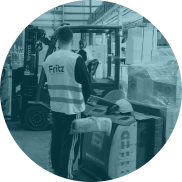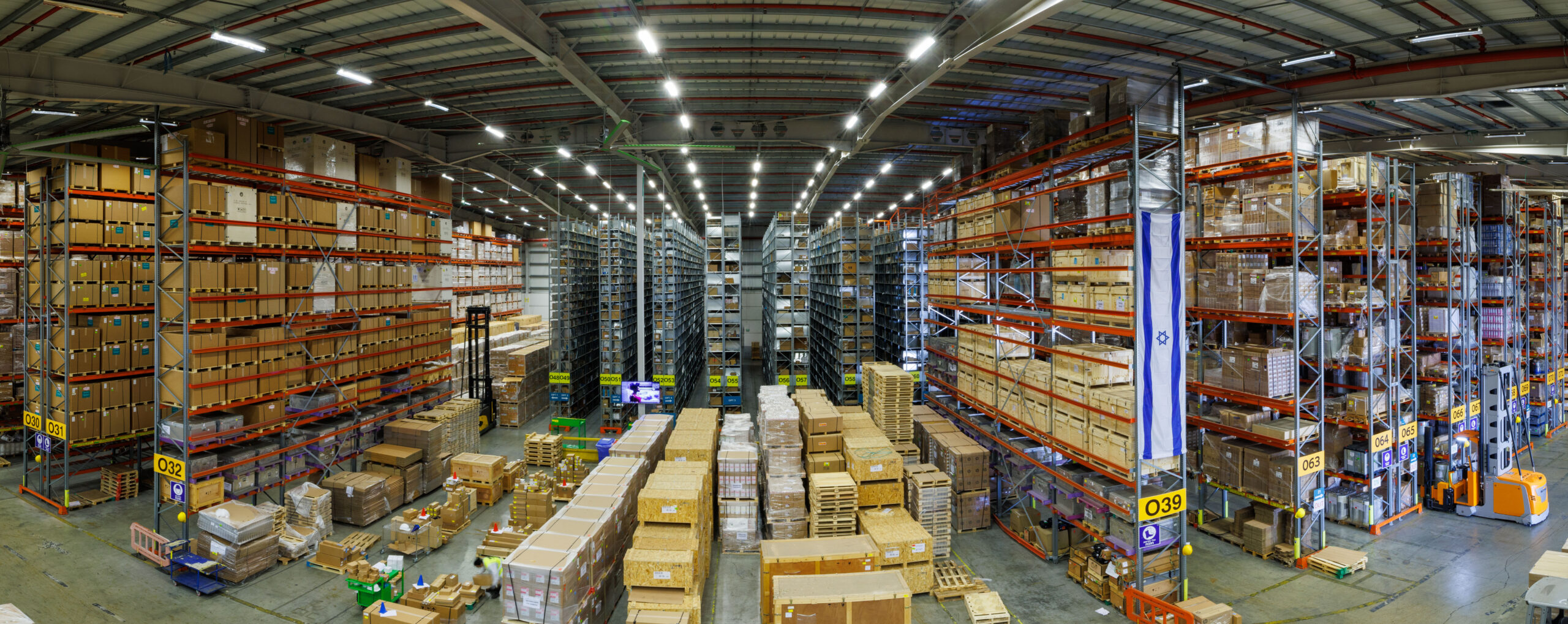Artificial Intelligence as a Solution for Dealing with Supply Chain Challenges
Effective supply chain management plays a crucial role in the success of businesses in various industries. Recently, the complexities and challenges arising in supply chain management have created a new reality that calls for change. At Fritz Logistics and Forwarding, we are beginning to organize ourselves for long-term solutions and the use of Artificial Intelligence (AI) to overcome these evolving challenges and realities.

Long-term planning has always been a cornerstone of efficient supply chain management, and at Fritz, we understand the significance of forward-thinking strategies. By adopting a long-term perspective, we explore ways to anticipate market trends, adapt to changing customer requirements, and make informed decisions that drive sustainable growth. One of the key factors in our long-term approach at Fritz is the integration of artificial intelligence into supply chain operations.
Artificial intelligence is capable of analyzing massive amounts of data, identifying patterns, and extracting practical insights. With the help of AI algorithms, more accurate demand forecasting can be achieved, inventory levels can be optimized, and overall supply chain efficiency can be improved. Demand forecasting is a critical aspect of supply chain management, and the use of artificial intelligence brings a revolution in this process by leveraging historical sales data, customer behavior, market trends, and external factors. AI algorithms can generate highly accurate demand forecasts, enabling informed decisions regarding procurement, production, inventory management, and consequently optimizing supply chain operations while minimizing the risks of stockouts or excess inventory. AI aids in demand forecasting, optimization of inventory management, and more.
The algorithms of artificial intelligence analyze various factors such as historical sales data, delivery times, product life cycles, and market trends. With the aim of determining optimal inventory levels while analyzing the demand for different product types and when it is advisable to order them to minimize inventory holding costs while maintaining high service levels.
AI-based analysis and predictive modeling enable the identification of potential bottlenecks, risk reduction, and streamlining of supply chain processes through data analysis from different sources, including suppliers. By evaluating transportation routes and production facilities, the algorithms of artificial intelligence can identify potential disruptions and offer proactive measures that can prevent or mitigate their impact. This level of foresight will allow us to optimize the supply chain network and provide exceptional customer experiences that transform the visibility and traceability of the supply chain, enabling real-time shipment tracking. This unique experience will be achieved through the integration of AI technologies such as Internet of Things (IoT) sensors and blockchain, which aim to capture and analyze data throughout the entire supply chain.
In conclusion, adopting long-term solutions and AI-based approaches will assist in addressing supply chain challenges. Through accurate demand forecasting, optimized inventory management, proactive risk reduction, and improved visibility using quality tools, we can effectively deal with complexities and provide exceptional solutions in the supply chain at Fritz Logistics and Forwarding.
![]()
![]()
![]()
Related articles

Servitz: Revolutionizing Service
In the fast-paced world of business, staying ahead of the competition requires innovative solutions and cutting-edge technologies. Fritz, a forward-thinking company, has recognized this need and established a dedicated digital department to drive innovation and digital development. One of their remarkable achievements is the development of Servitz, an app that has transformed the company’s service, logistics, operations, and business intelligence.











